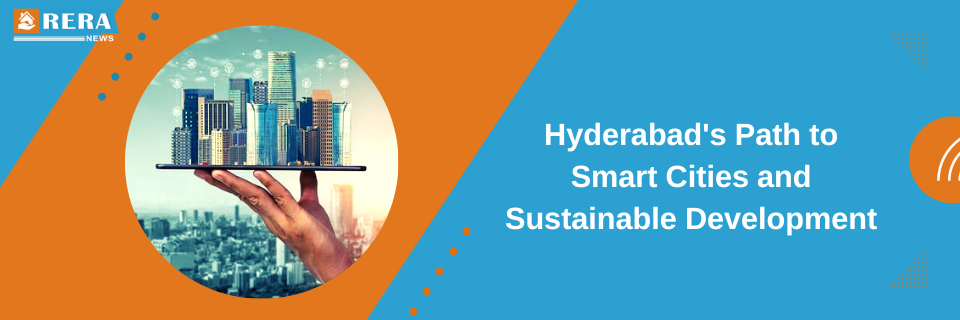
In the pursuit of a sustainable future, cities across the globe are embracing the concept of smart cities. Hyderabad, the capital city of Telangana in India, stands out as a remarkable example of urban development, demonstrating its dedication to sustainable practices and the implementation of smart city initiatives. This blog delves into Hyderabad's journey towards becoming a smart city and how it is fostering sustainable development for the betterment of its residents.
Infrastructure for a Smart City:
Hyderabad's smart city vision revolves around creating modern and efficient infrastructure. The city has made significant investments in cutting-edge technologies such as the Internet of Things (IoT), data analytics, and artificial intelligence. These innovations optimize the functioning of urban systems, resulting in smarter traffic management systems, intelligent street lighting, and efficient waste management solutions. By embracing technology, Hyderabad enhances the quality of life for its citizens while minimizing its ecological footprint.
Harnessing Renewable Energy:
A fundamental pillar of smart cities is the adoption of sustainable energy sources. Hyderabad has been proactive in this regard, promoting renewable energy generation and energy-efficient practices. The city is making substantial strides in solar power generation and encouraging the use of rooftop solar panels in both residential and commercial buildings. By investing in energy-efficient lighting systems, Hyderabad reduces carbon emissions and ensures a reliable and affordable energy supply for its residents.
Effective Water Management:
Hyderabad faces the challenge of water scarcity, particularly during dry seasons. To combat this issue, the city has implemented smart water management systems to optimize water usage and preserve this invaluable resource. Through the implementation of smart water meters, leak detection systems, and real-time monitoring of water supply, Hyderabad reduces wastage and improves the efficiency of water distribution networks. Moreover, the city actively promotes rainwater harvesting techniques and educates the public on water conservation practices, fostering a culture of responsible water consumption.
Intelligent Transportation Solutions:
With a rapidly growing population and increasing traffic congestion, Hyderabad has embraced intelligent transportation systems to enhance mobility and reduce pollution. The city has introduced smart traffic signal systems that adapt to real-time traffic conditions, thereby reducing travel time and fuel consumption. Furthermore, Hyderabad encourages the use of public transportation, cycling infrastructure, and electric vehicles, aiming to minimize emissions and promote sustainable transportation alternatives.
Citizen Engagement and Digital Services:
Active citizen engagement is a crucial aspect of a smart city. Hyderabad has embraced digital platforms to facilitate citizen participation in its development. Online portals and mobile applications empower residents to report issues, provide feedback, and contribute to decision-making processes. By adopting an inclusive approach, Hyderabad fosters a sense of ownership among its citizens and ensures that urban development aligns with their needs and aspirations.
Conclusion:
Hyderabad's pursuit of becoming a smart city dedicated to sustainable development serves as an inspiration for cities worldwide. Through its focus on smart infrastructure, renewable energy, water management, intelligent transportation, and citizen engagement, Hyderabad demonstrates that technological advancements can be leveraged to create a greener and more livable urban environment. As the city continues to evolve, its commitment to sustainability and innovation will pave the way for a brighter future for generations to come.
© 2023 Rera News. All rights reserved.